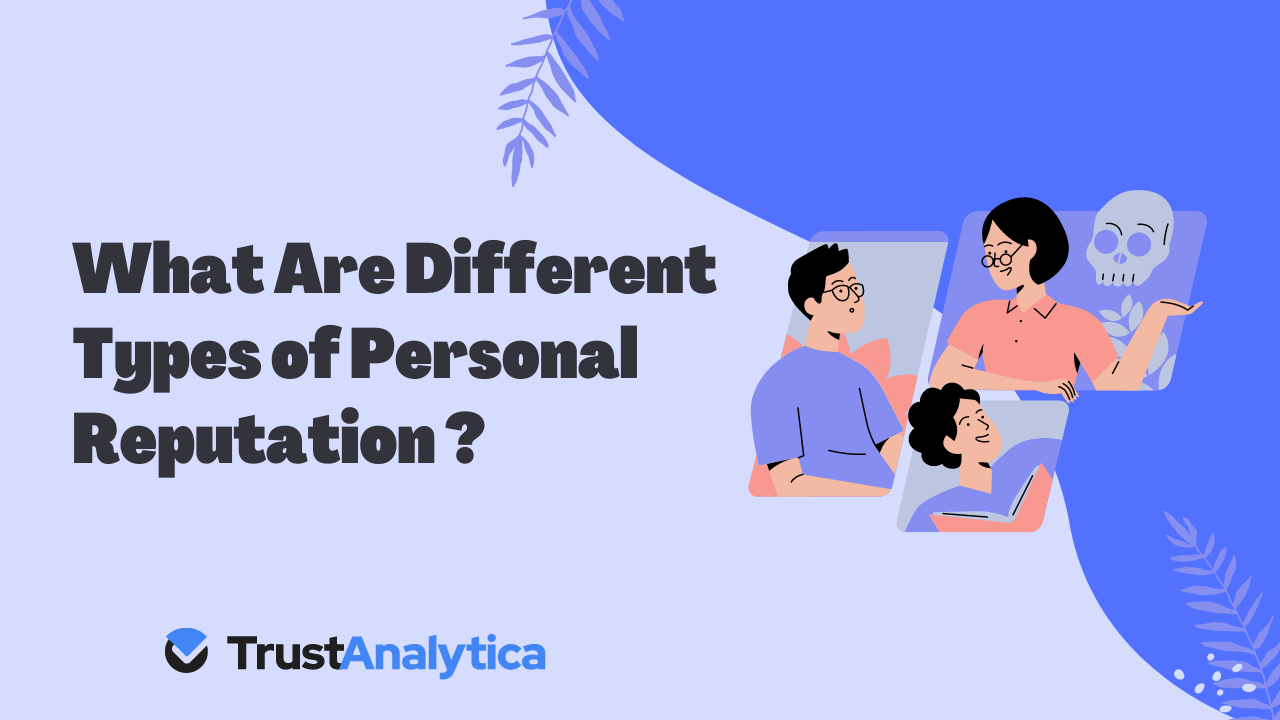Updated: 16 Novermber, 2023 These days, the world has become a sort of global village. Not that everyone knows everyone, but still they can if they are willing to. The rapid influx of information at unprecedented levels, thanks to the internet and social media platforms, specifically, makes it impossible for people to insulate themselves from […]

Updated: 16 Novermber, 2023
These days, the world has become a sort of global village. Not that everyone knows everyone, but still they can if they are willing to. The rapid influx of information at unprecedented levels, thanks to the internet and social media platforms, specifically, makes it impossible for people to insulate themselves from the onslaught, with no respite or solace.
Still, the connectivity of modern human beings makes them vulnerable to incursions from people with malicious intent. Those who believe that only celebrities and important people have online reputation does not understand the real extent of the internet and social media.
Depending on the vastness and limitations of each person’s sphere of influence, everyone has an online reputation.
It is hard to define types of personal reputation without taking into account the full spectrum of phenomena. In the internet world, most chatter and gossip go cyclically. It starts with a single post or comment. Depending on who made that comment for whom and on which platform, it can gather momentum and become viral in a matter of hours – sometimes even minutes.
That’s why it is necessary to take into account all the levels or stages of personal reputation management to create and secure personal brands. For a more streamlined approach, professionals use dedicated software to stay on top of the developments in the “cyber” sphere.
Following is a rundown of the steps involved in making or breaking personal reputations across multiple platforms and levels:
Now, let us dive deeper into the details of each level to gain practical insights regarding personal online reputation management.
Causes for personal reputation are divided into two distinct categories;
The scale of personal reputation is always different, from one individual to another. Between an influential personality and a common person, it varies in its reach and scope.
When this is moved from an influential person, such as a movie star, CEO, etc, to corporate entities, marketers need to take a completely different approach throughout the whole process.
For a personal brand reputation, marketers and professionals must be aware of these audience types and their influence in changing the course of the tide:
Personal brands either suffer or gain a lot wherever there is an uptick of chatter. Since the internet is not a molecular whole, there are many bases that professionals need to cover and many fortresses they need to man.
Here are some commonly used platforms across almost all types of personal reputation management:
Time frame is necessary while taking into account the effects of causes, scale, audience types, and platforms. In case of a crisis, professionals are not supposed to beat around or stick to a rigid schedule. In many cases, they have emergency codes and SOPs in place to thwart any budding controversies and crises.
Based on the rationale behind a personal brand, the desired goals change drastically. For instance, if a writer wants to manage his or her online reputation, he or she may have the following goals:
Depending on the nature, scope, and reach of a personal brand, the reputation itself and its management differ and require different elements in the play.
Even though people are still warming up to the need for privacy and control over their online identities, it is necessary to understand the benefits of personal online reputation management. It does not matter the level of influence a person has, there is always some.
Following are some benefits of keeping things in strict order, irrespective of the type of personal reputation:
Personal brand development is almost the same as any other business brand. There are rigid boundaries that people must set in terms of target audiences, products or services they want to offer or already offering, as well as the perception of that personal brand. The latter often deals with the promotion or condemnation of social, economic, and political issues.
Overall, personal brands are much better off when they take into account the benefits of personal online reputation management and hire professional companies accordingly.
Even for the sake of putting on a good face, an online brand reputation is essential. Instead of letting a crisis or a negative campaign brew and inflict damage on the brand, the best course of action is to always work for apparent success, while the real one will follow.
Personal brands require an active shield against both technical cyber-attacks as well vicious campaigns to sideline their influence and success. Through efficient brand reputation management, especially using modern tools, personal reputation will not only be safe but will thrive and reach new limits.
Another benefit of taking care of a personal online reputation is that it takes care of it in return. Through positive messages and overall look, personal brands can get in touch with other successful brands. This can turn success into a positive domino effect.
Irrespective of the reach, scope, and scale, there are different types of personal reputation – and reputation matters. The main takeaway of this post is the management of personal brands from both negative campaigns and vicious cyber-attacks.
The best way to not only create a solid brand but to make it sustainable and thriving needs professional help. Through different types of personal reputation security, this plan can be materialized.

